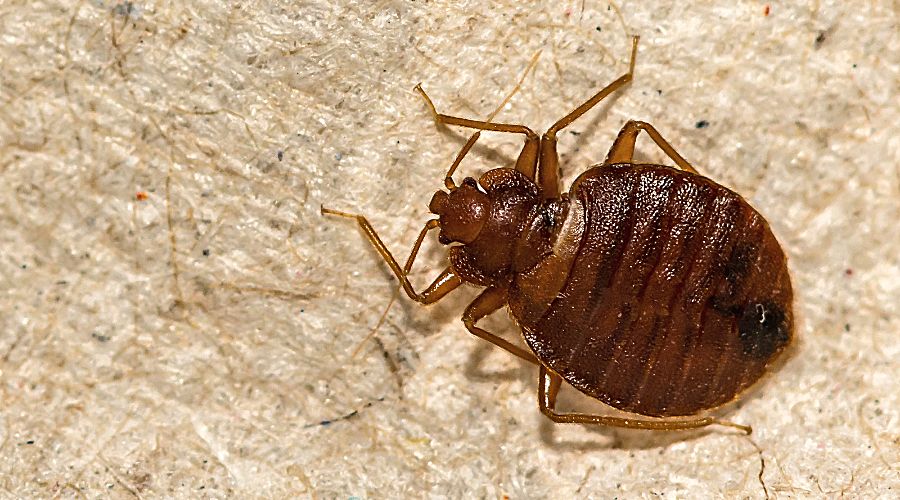Bed bugs are small insects and common household pests in the U.S., including Lewisville, Texas. While they are not a significant health threat to humans as they do not transmit diseases, these tiny creatures can be the source of annoyance and discomfort as they can cause sleep disturbances and painful bites.
As parasites, bed bugs survive by feeding on the blood of humans and animals. As they can live without food for long periods, getting rid of them requires measures other than simply emptying your house for a few days.
But how long can bed bugs live without food? Read on to learn more!
What Do Bed Bugs Eat?
Bed bugs are known for solely feeding on blood. They attach themselves to the host, which typically includes humans, but might also suck blood from animals like cats, dogs, birds, rodents, and more. In fact, these pests do not possess the capability to chew on anything as they do not have chewing mouthparts.
Unlike other pests like rodents, ants, or flies, these creatures won’t get lured toward food sources or a dirty, filthy space. Accordingly, bed bug bites are a significant nuisance in infested areas, which lead to swelling and itchy welts.
While they lack the instinct to jump or fly, bed bugs usually enter homes by hitchhiking in old furniture, luggage, clothing, etc.
Factors Influencing How Long Bed Bugs Can Live Without Food
Research reveals that bed bugs can go without feeding for more than a year, up to 400 days, in controlled settings. Accordingly, abandoning your house or apartment to starve these creatures will be futile.
However, a bed bug can survive so long that it requires an extremely favorable environment. Several essential factors determine how long these insects can live without a blood meal.
Age is one of the crucial factors. As the bed bug transitions into the next stage of life, it becomes more resilient and can survive without food for longer periods. Full-grown bugs can live without feeding for more than a year, whereas young nymphs must get a meal every 3- 5 months to advance to the next stage of life and mature, or else they will die.
Another factor determining the amount of time bed bugs can live without food is the temperature. Colder environments increase the lifespan of these insects as they converse more energy and are comparatively inactive than in humid conditions, requiring lesser meals.
The ideal temperature for bed bugs to thrive is about 60-80℉. Cooler conditions mean that they can go for a longer period without food.
How Long Do Bed Bugs Feed?
Bed bugs are nocturnal and are most active at night. The time a bed bug sucks blood during a single feeding event depends on factors, including the last time it ate and how much blood it sucked.
However, these parasites typically feed for 5- 10 minutes after latching on to a host. A bed bug can draw blood up to six times its total weight in a single feeding session, after which it will return to its hiding spot.
It is also important to note that a single bug can inflict more than one bite every night. Bed bugs typically feed once after every 3-10 days, though feeding once a day is not impossible.
Most often, people do not realize they have a bed bug attached to them and find out later when they spot bite marks or feel symptoms like inflammation and swelling the next day.
Do not allow bed bugs to get the best of you. A professional pest control specialist can help keep bed bugs at bay from your property!
How to Get Rid of Bed Bugs
DIY methods for controlling bed bugs can be lengthy, requiring some elbow grease. While heat treatments and pesticides can work to some extent, they do not always guarantee optimal results, especially if an infestation is widespread.
Accordingly, the quickest and most surefire way to eliminate these blood-sucking insects is by contacting a pest extermination company to take control of the problem.
At Romney Pest Control, we are a team of highly skilled and experienced pest control professionals, delivering top-quality services for over a decade throughout Texas.
Our team of technicians will inspect your home’s interior and exterior to discover the source of the problem. We will then adopt the appropriate elimination methods based on our findings.
Contact us today for a quick and efficient solution to your bed bugs problem for good and reclaim your space!




